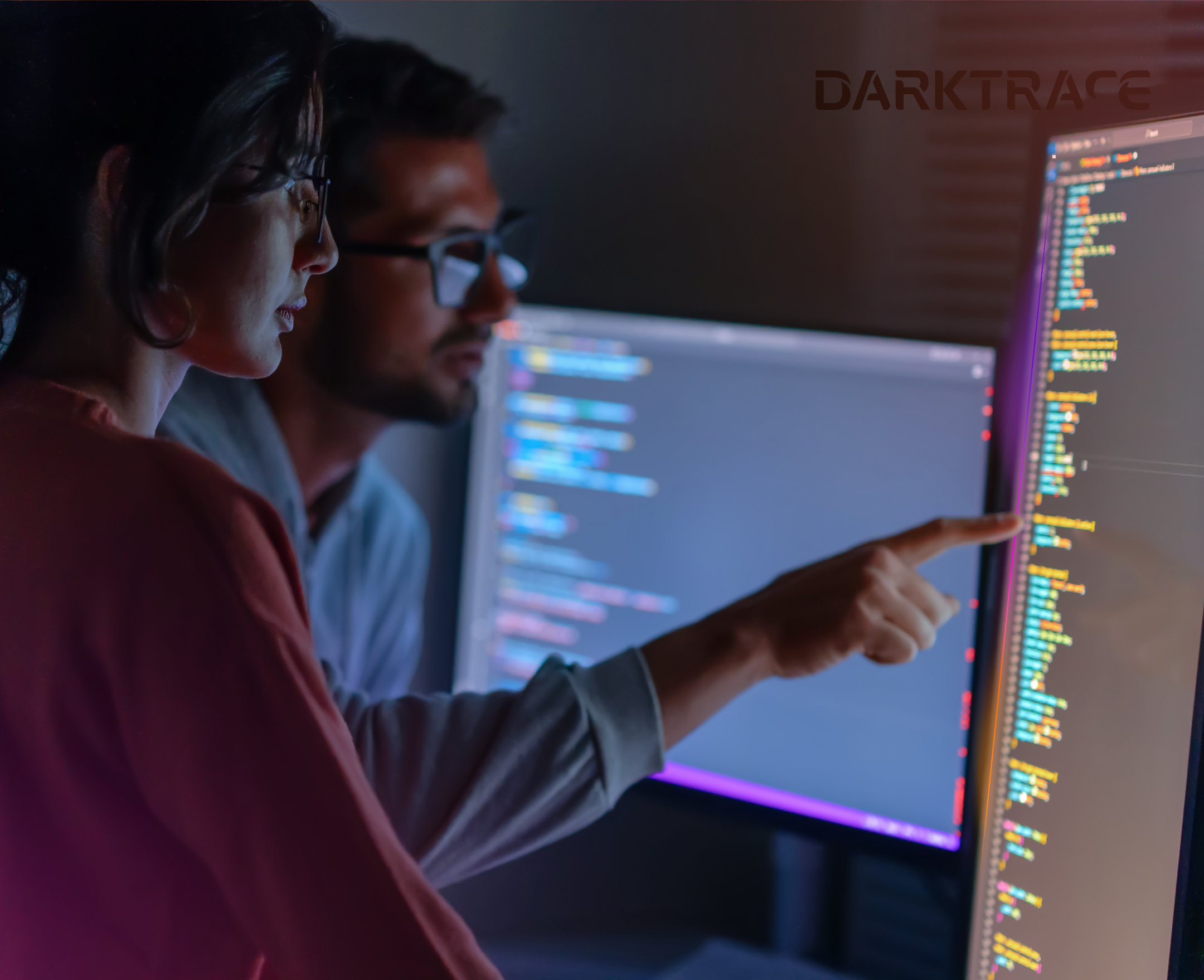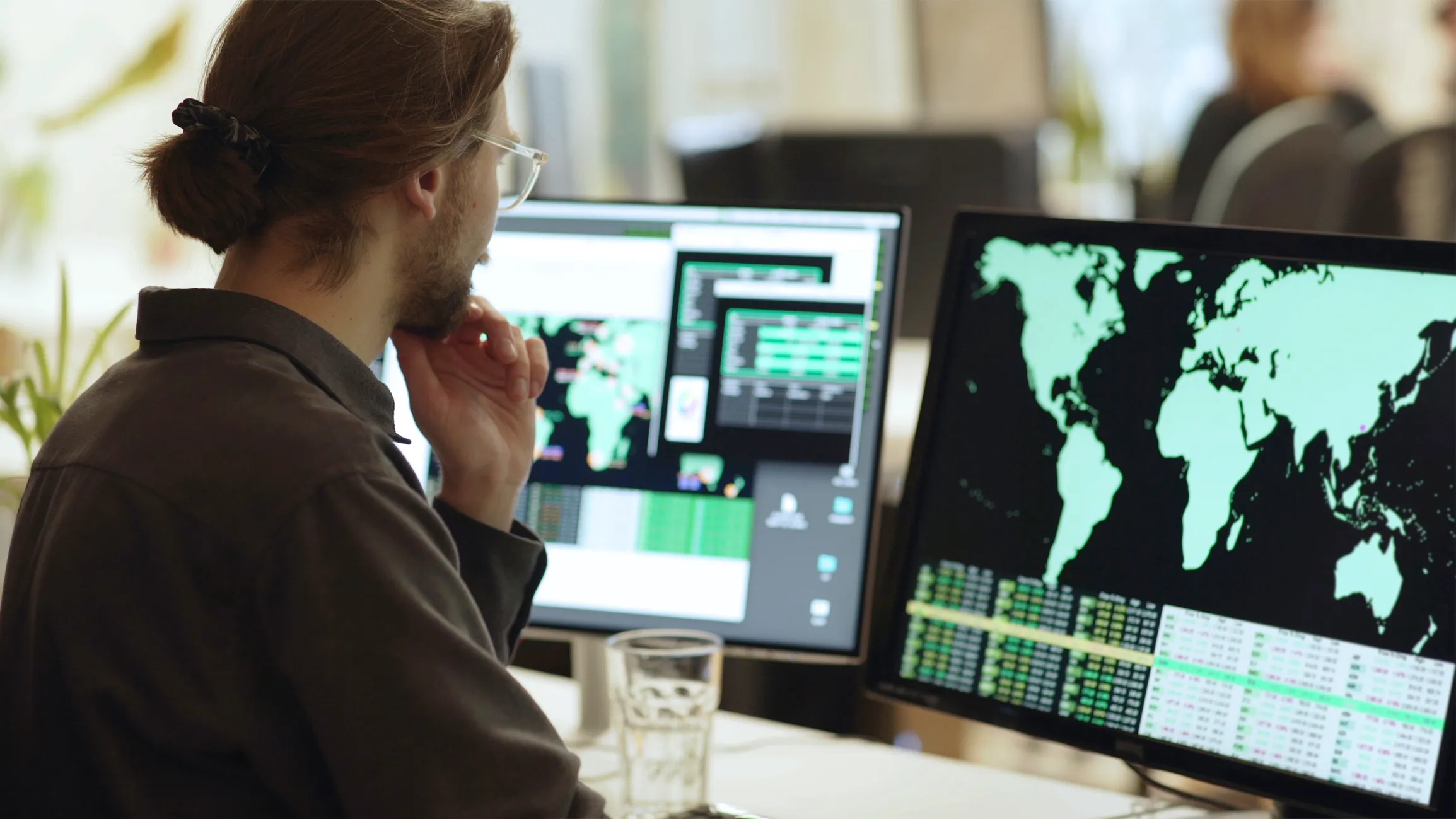Defenders are accustomed now to an uptick in cyber-attacks around the holiday period. The festive shopping season creates ideal conditions for cybercriminals. Consumers are inundated with time-sensitive deals, while retailers handle record-breaking transaction volumes at speed. This environment makes it harder than ever to identify suspicious activity.
An investigation conducted by Darktrace’s global analyst team revealed that Christmas-themed phishing attacks leapt 327%1 around the world and Black Friday and Cyber Monday themed phishing attacks soared to 692% last week compared to the beginning of November2 (4th - 9th November), as threat actors seek to take advantage of the busy holiday shopping period.
The United States retail sector saw the most marked increase in threat actors crafting convincing emails purporting to be from well-known brands, mimicking promotional emails. Attacks designed to look like they came from major brands including Walmart – which was easily the most mimicked US brand – Macy’s, Target, Old Navy, and Best Buy3 increased by more than 2000% during peak shopping periods.
Darktrace analysis also highlighted a redistribution of scammers’ resources to take advantage of the festive shopping season, moving from targeting businesses to consumers. The impersonation of major consumer brands, dominated by Amazon and PayPal4, increased by 92% globally between analyzed periods, while the spoofing of workplace-focused brands, like Adobe, Zoom and LinkedIn, decreased by 9%.
Major retail brands invest heavily in safeguarding themselves and their customers from scams and cyberattacks, particularly during the holiday season. However, phishing and website spoofing occur outside the retailers' legitimate infrastructure and security controls, making it difficult to catch and prevent every instance due to their sheer volume. While advancements like AI are helping security teams narrow the gap, brand impersonation remains a persistent challenge.
Multiple attack methods exploit trust during holiday rush
Darktrace’s findings demonstrate some of the most common brand spoofing strategies used by attackers during the holiday season:
Domain spoofing, which sees attackers create near perfect replicas of retail websites, complete with lookalike domain names and branding, to trick consumers into handing over personal and payment details.
Brand spoofing, where attackers send a phishing email designed to look like a favorite retailer, enticing their target to click a link for a discount, when in fact the link downloads malware to their device.
Safelink smuggling, which involves an attacker intentionally getting their malicious payload rewritten by a security solution’s Safelink capability to then propagate the rewritten URL to others. This not only evades detection but also undermines trust in email security tools. Darktrace observed over 300,000 cases of Safelinks being included in unexpected and suspicious contexts over a period of 3 months.
Multi-stage attacks which combine these tactics into a single attack: brand spoofing emails lead unsuspecting shoppers directly to domain spoofed websites that harvest login or payment details, creating a seamless deception that hands personal and financial data directly to attackers. This coordinated approach exploits the chaos of holiday sales, when shoppers are primed to expect high volumes of retail emails and website traffic promoting significant savings.
A spike in cyber-criminal activity which extends beyond email
While email often serves as the front door to an organization and the initial avenue of attack, Darktrace frequently observes a surge in cyber-attacks during public holidays5. These “off-peak” attacks exploit common organizational practices and human vulnerabilities with greater ease.
When staff numbers are reduced, and employees mentally and physically disconnect from work, the speed of detection and response has the potential to slow. This creates opportunities for threat actors to infiltrate undetected. Without real-time autonomous systems in place, such attacks can have a far more severe impact on an organization’s ability to respond and recover effectively.
Ransomware is among the most common threats targeting organizations after hours. In 76% of cases, the encryption process begins during off-hours or on weekends6. For instance, Darktrace identified a ransomware attack launched in the early hours of Christmas Day on a client’s network, taking advantage of the period when most employees were offline.
Festive cheer: giving your SOC team the break they deserve
Staff burnout is increasingly top of mind, with 74% of cybersecurity leaders reporting that they’ve had employees resign due to stress7. And the numbers stack up – almost 60% of security analysts report feeling burnt out, and many are choosing to leave their jobs and even security altogether.8
At a human level, the holiday season should be a time of relaxation and merriment rather than anxiety. For SOC leaders, giving teams time to prioritize recharging during the holidays is crucial for sustaining long-term resilience and productivity, balanced with the importance of maintaining rigorous defenses with a reduced workforce.
So… how can cybersecurity leaders ensure peace of mind during the holidays?
Step 1: Cover yourself from every angle. It’s no longer enough for your email solution to only catch known threats. Security leaders need to invest in multi-layered email defenses that can combat novel and advanced attacks – such as the multi-stage brand personation attacks that lead shoppers to domain-spoofed websites.
Darktrace / EMAIL – the fastest growing email security solution – has been proven to detect up to 56% more threats than other email solutions.9 It is uniquely capable of catching novel attacks on the first encounter, rather than waiting the 13 days it takes for other solutions to take action10 – by which time your decorations might be coming down, along with your business.
Step 2: Avoid an overwhelming deluge of alerts raining (or snowing) down on your L1 SOC analysts. Lining up people to manage the grunt work over the holidays is an easy pattern to fall into, but consider technology that can automate that initial triage. For example, Darktrace’s Cyber AI Analyst automatically investigates every alert detected by Darktrace’s core real-time detection engine. It does an additional layer of AI analysis – establishing whether an alert is unusual but benign, or part of a more serious security incident. Rather than looking at hundreds of alerts, your team is presented with just a handful of overall incidents. They can use that new free time to do more strategic work, or take some much-needed time off.
Step 3: Make sure someone – or something – is keeping guard in those super off-peak hours. Enter Autonomous Response. Because it knows what normal looks like for your business it can take action to stop and contain only the unusual and threatening activity. Even if it doesn’t eliminate the threat entirely, it can buy your security team time and space, allowing them to enjoy their holiday in peace.
With Black Friday over and the festive shopping period looming, businesses should act now to protect their brand and ensure they have the cybersecurity measures are in place to enjoy the gift of a stress-free holiday season.
Interested in how AI-driven email security can protect your organization? Check out the product hub to learn more. Or watch the demo video to see Darktrace / EMAIL in action.
References
[1] Based on analysis of 626 customer deployments and attempted phishing emails mentioning Christmas that were detected by Darktrace / EMAIL.
[2] Emails in the analysis mentioning ‘Black Friday’ or ‘Cyber Monday’.
[3] Walmart, Target, Best Buy, Macy's, Old Navy, 1800-Flowers
[4] Amazon, eBay, Netflix, Alibaba, Paypal, Apple
[5] In 2021, Darktrace observed a 70% average increase in attempted ransomware attacks in November and December compared to January and February. (Darktrace Press Release, 2021)
[6] https://www.zdnet.com/article/most-ransomware-attacks-take-place-during-the-night-or-the-weekend
[7] https://www.scworld.com/perspective/ciso-stress-levels-are-out-of-control
[8] https://www.informationweek.com/cyber-resilience/the-psychology-of-cybersecurity-burnout
[9] 56% of malicious phishing emails detected and analyzed across Darktrace / EMAIL customer deployments from December 2023 – July 2024 passed through all existing security layers. (Darktrace Half Year Report 2024)
[10] 13 days mean average of phishing payloads active in the wild between the response of Darktrace / EMAIL compared to the earliest of 16 independent feeds submitted by other email security technologies. (Darktrace Press Release, 2023)




































.avif)


.avif)


